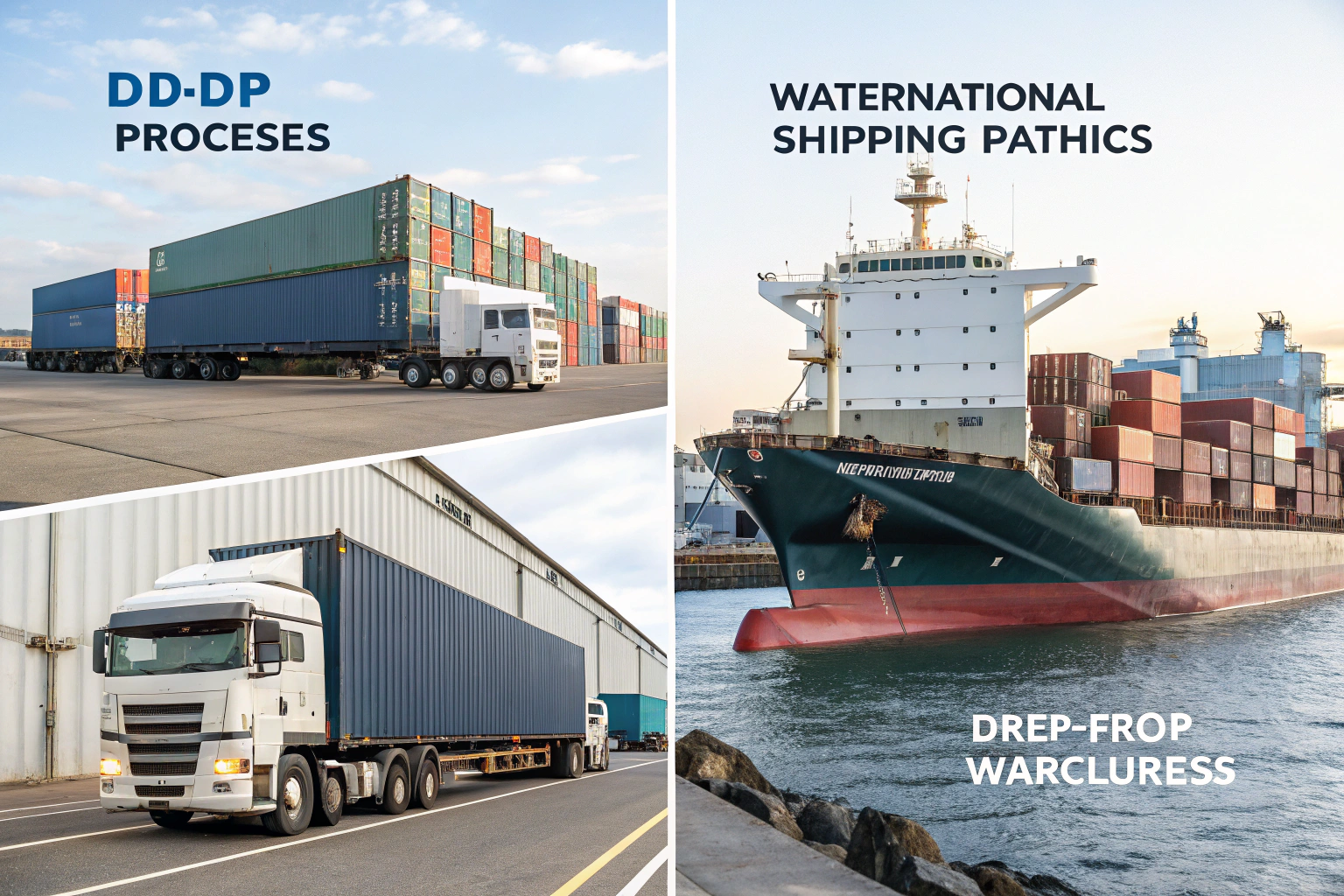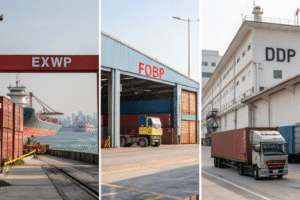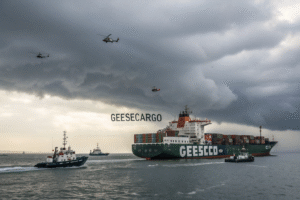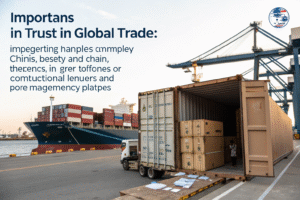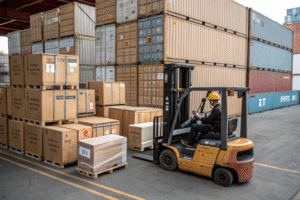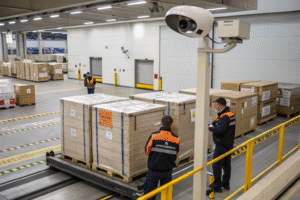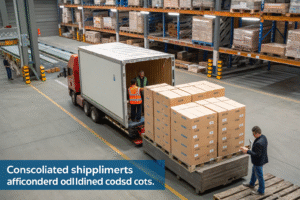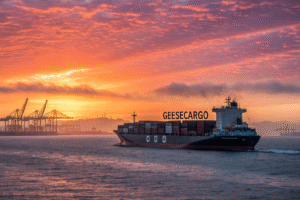When importing goods from China to the U.S. or Europe, one of the most important choices a buyer must make is the shipping term. Two of the most common trade terms are FOB (Free on Board) and DDP (Delivered Duty Paid). At GeeseCargo, we often get asked which option is better. The truth is—it depends on your logistics strategy, risk tolerance, and internal capabilities.
FOB means the buyer takes responsibility once goods are loaded onto the vessel, while DDP means the seller or freight forwarder manages the entire shipping process door-to-door, including customs and taxes.
If you're new to sourcing or looking to simplify your supply chain, understanding the key differences between FOB and DDP can save you time, money, and stress. Let's break it down from a freight forwarder’s perspective.
Who Controls the Shipping Process Under FOB and DDP?
FOB and DDP place control of logistics in different hands. With FOB, buyers manage the shipment after goods leave the Chinese port. With DDP, freight forwarders like GeeseCargo manage the whole journey.
The biggest difference is who arranges the shipment and takes responsibility during transit.
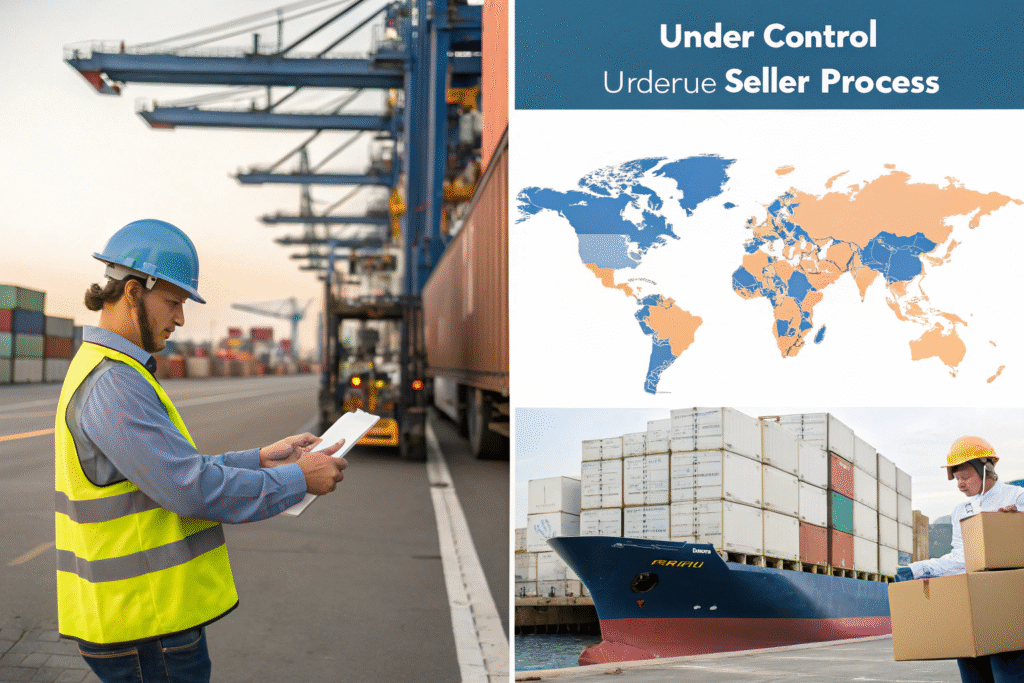
What Is the Buyer Responsible for Under FOB?
Under FOB terms, the seller’s responsibility ends when goods are loaded at the port of origin—usually Shanghai, Ningbo, or Shenzhen. The buyer then takes over all logistics arrangements, including ocean freight, insurance, customs clearance, import duties, and final delivery.
For many U.S. importers, that means hiring your own freight forwarder in the U.S., navigating customs clearance independently, and dealing with port pickup coordination. Learn more about FOB responsibilities and common mistakes to avoid.
How Does DDP Simplify the Process for Buyers?
With DDP, your freight forwarder (like us) handles everything. That includes:
- Pickup from the factory
- Export customs
- International freight
- Import duties/taxes
- Delivery to your warehouse
This is especially valuable if you're new to importing or want a "hands-off" solution. You can read more about how DDP terms work and when to choose DDP.
How Do Cost Structures Differ Between FOB and DDP?
FOB pricing often looks cheaper upfront, but that’s because it only includes delivery to the port. DDP includes the full logistics chain.
DDP is typically higher in initial quote but offers cost predictability. FOB may lead to unexpected costs post-shipment.
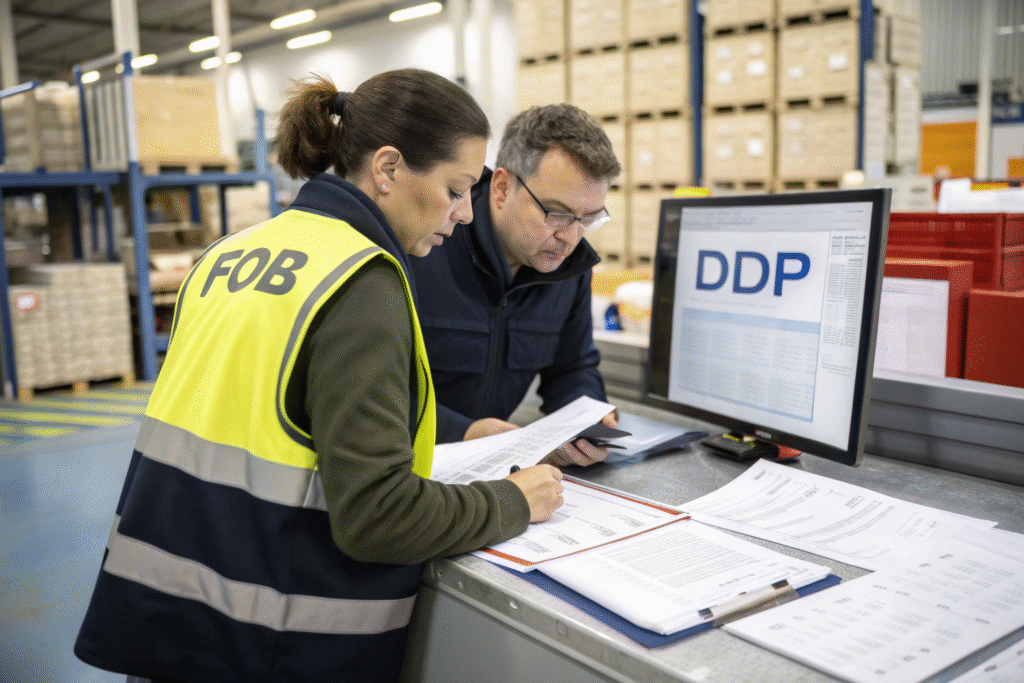
Is FOB More Cost-Effective for Experienced Importers?
Yes—if you have an established logistics team or preferred forwarder in your destination country, FOB may give you better long-term control and flexibility. You'll pay:
- Ocean or air freight charges
- Terminal handling fees (THC)
- Destination customs
- Duties and taxes
- Last-mile delivery
But many first-time buyers underestimate these "hidden costs." Review typical FOB cost breakdowns to estimate accurately.
Why Do Many Brands Choose DDP for Predictability?
With DDP, you receive an all-inclusive quote covering the entire journey. At GeeseCargo, we tell you your exact landed cost before shipment begins. No port handling fees. No surprise demurrage. No customs confusion.
DDP pricing includes all duties and taxes, which is why it’s preferred by companies with tight delivery timelines or limited customs knowledge. You can learn more about DDP cost structures and their benefits.
What Are the Customs Responsibilities?
Customs clearance can be a major pain point—especially for U.S. importers managing high-value or regulated goods. The shipping term you choose determines who handles these tasks.
Under FOB, you must manage customs clearance. Under DDP, your freight forwarder handles it for you.
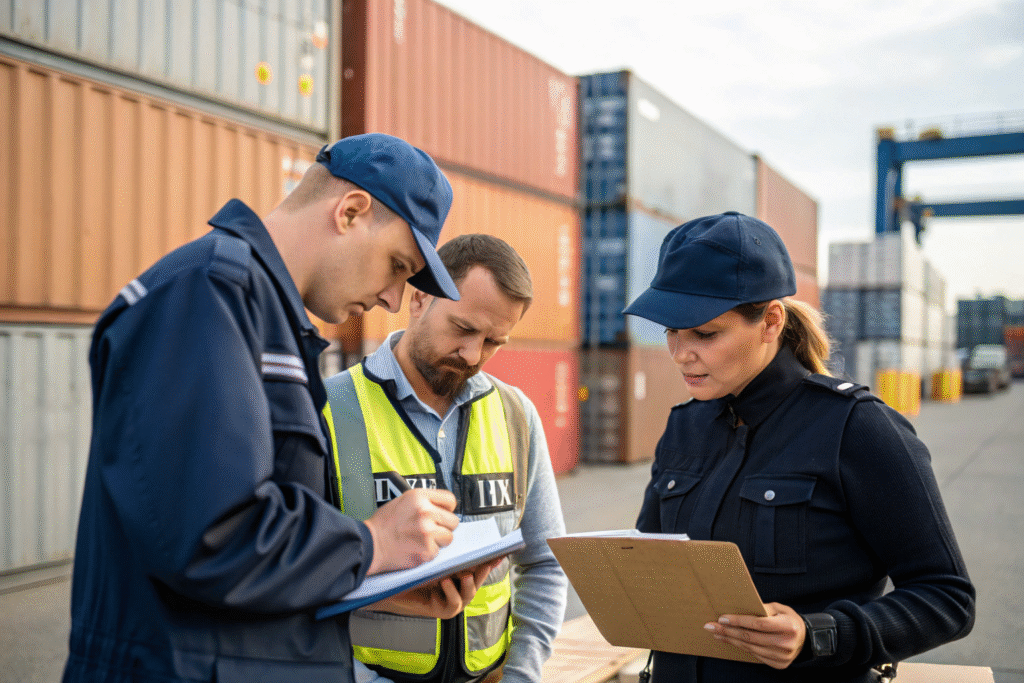
What Does the Buyer Handle for Customs With FOB?
As a buyer under FOB, you're responsible for:
- Hiring a customs broker
- Submitting import documents
- Classifying HS codes
- Paying duties/taxes
- Complying with U.S. regulations (e.g. FDA, FCC, CPSC)
For high-risk or tightly regulated items, this process can be overwhelming. CBP’s Importing Guidelines show how much work is required to import properly.
What Does DDP Include for Customs?
When GeeseCargo manages DDP shipments, we:
- Submit all documents for both export and import
- Pay import taxes and duty fees upfront
- Handle HS code classification
- Clear goods with U.S. Customs and Border Protection
- Deliver straight to your door
This minimizes risk of delays or penalties and gives you peace of mind—especially for seasonal or time-sensitive shipments.
Which Shipping Term Is Better for Your Business?
Choosing between FOB and DDP depends on your experience level, logistics infrastructure, and tolerance for involvement.
FOB is ideal for experienced importers with internal logistics capacity. DDP is ideal for fast-moving brands, small teams, or new buyers needing full support.
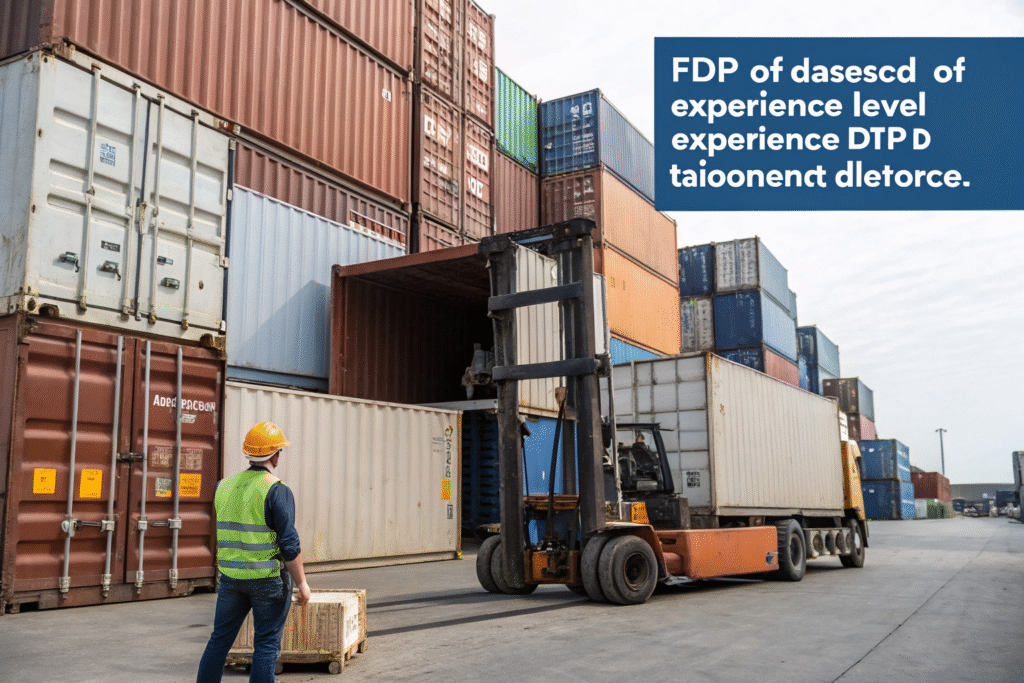
When Should You Choose FOB?
Choose FOB if:
- You have a trusted U.S. forwarder
- You want to compare freight quotes
- You’re familiar with customs regulations
- You want direct control of logistics partners
FOB gives more control but requires more involvement. Learn how to negotiate better FOB terms with your Chinese supplier or forwarder.
Who Handles Customs and Duties Under DDP?
The seller or their logistics provider (like GeeseCargo) handles the entire customs process. That includes filing documentation, paying import duties, and arranging last-mile delivery to your warehouse.
This makes DDP ideal for buyers who want simplicity and less paperwork. Especially if you’re shipping to the U.S., you’ll want a partner who knows how to navigate CBP entry requirements.
Why Is DDP Preferred for New or Busy Buyers?
Ron, one of our long-term clients, switched to DDP because he was tired of handling customs issues on his end. DDP gave him peace of mind—knowing that once the goods left the Chinese factory, GeeseCargo took care of everything.
We even manage HS code classification and ensure your goods are properly declared to avoid penalties or unnecessary taxes.
How Do FOB and DDP Compare in Cost and Responsibility?
Cost and responsibility vary widely between FOB and DDP. FOB often appears cheaper up front, while DDP covers everything, including risk.
Choose FOB if you want cost control and have logistics experience. Choose DDP for convenience and peace of mind.
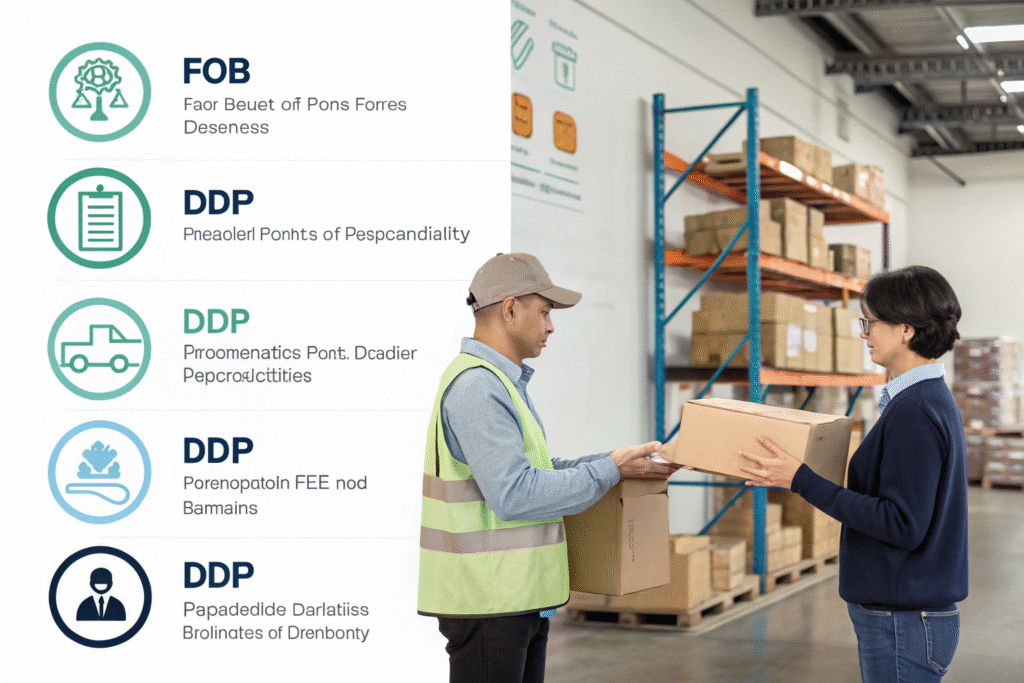
Which One Is Cheaper Overall?
FOB may seem cheaper because the seller isn’t charging for customs and last-mile delivery. But once you factor in freight, insurance, customs duties, and U.S. delivery, it might actually cost more than a DDP package.
We always advise clients to ask for a landed cost breakdown when comparing FOB and DDP quotes. This ensures you're not caught off-guard by extra fees.
Use online tools like this freight cost calculator to estimate your real costs.
Which Term Is Better for Scaling Businesses?
If you're scaling quickly and don’t have a dedicated logistics team, DDP lets you focus on selling rather than shipping. We handle scheduling, customs entries, and even Amazon FBA deliveries under DDP terms.
For advanced buyers who negotiate directly with shipping lines, FOB offers more cost control and flexibility to switch carriers when needed.
What Are the Legal and Operational Impacts?
Using the wrong Incoterm in a contract can lead to disputes or fines. Both FOB and DDP carry legal responsibilities that importers and exporters need to understand.
Freight forwarders help translate legal terms into clear operational steps, ensuring both parties follow international trade rules.

What Happens in Case of Disputes?
With FOB, the buyer is responsible for everything post-port. So if the ship is delayed or cargo gets damaged mid-transit, it’s not the seller’s fault. On the other hand, DDP places all delivery and duty risks on the seller.
Our team prepares Incoterm-compliant sales contracts and guides buyers through each stage. That way, all parties are aligned on roles and responsibilities.
How Do You Ensure Contract Clarity?
Every shipment we handle under DDP includes detailed terms outlining cost inclusions, timelines, and delivery points. We also clarify transfer of title and risk, so buyers know when the goods officially become theirs.
When using FOB, we always recommend inserting shipment cutoff times and carrier liability clauses in the contract. You can read more about FOB legal risks and how to mitigate them.
Conclusion
FOB and DDP are both widely used in China-to-U.S. freight, but they offer very different experiences. FOB gives buyers more control and flexibility—ideal for experienced importers. DDP, however, removes complexity and hands over responsibility to the seller, perfect for new or busy businesses. At GeeseCargo, we help our clients choose the best Incoterm for their situation, handle contract execution, and manage every detail along the way. Whether you’re scaling operations or want to simplify shipping, we’re here to guide you.
